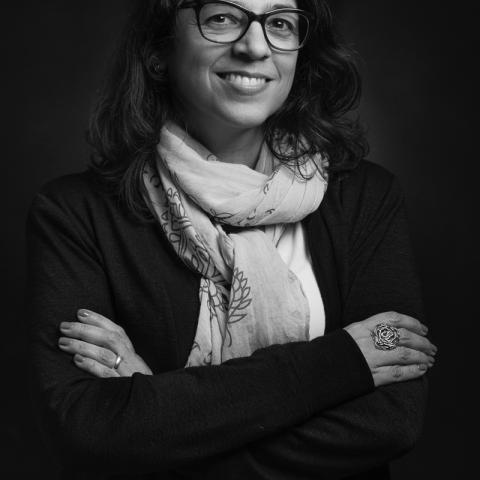Professor of History

Areas of Research Specialization
- Latin America/Argentina
- Immigration/Diaspora
- Jewish History
Areas of Teaching Specialization
- Latin American History
- Modern Jewish History
- Gender History
External Affiliations
Education
-
B.A. in English at Institutional Nacional Superior del Profesorado "Joaquín V. Gonzalez", 1989
-
Ph.D. in History at Duke University, 2004
Spotlight
- Sephardi, Jewish, Argentine: Community and National Identity, 1880-1960
At the turn of the 20th century, Jews from North Africa and the Middle East were called Turcos ("Turks"), and they were seen as distinct from Ashkenazim, not even identified as Jews. Adriana M. Brodsky follows the history of Sephardim as they arrived in Argentina, created immigrant organizations, founded synagogues and cemeteries, and built strong ties with coreligionists around the country.
She theorizes that fragmentation based on areas of origin gave way to the gradual construction of a single Sephardi identity, predicated both on Zionist identification (with the State of Israel) and "national" feelings (for Argentina), and that Sephardi Jews assumed leadership roles in national Jewish organizations once they integrated into the much larger Askenazi community.
Rather than assume that Sephardi identity was fixed and unchanging, Brodsky highlights the strategic nature of this identity, constructed both from within the various Sephardi groups and from the outside, and reveals that Jewish identity must be understood as part of the process of becoming Argentine.
- The New Jewish Argentina
The New Jewish Argentina aims at filling in important lacunae in the existing historiography of Jewish Argentines. Moving away from the political history of the organized community, most articles are devoted to social and cultural history, including unaffiliated Jews, women and gender, criminals, printing presses and book stores. These essays, written by scholars from various countries, consider the tensions between the national and the trans-national and offer a mosaic of identities which is relevant to all interested in Jewish history, Argentine history and students of ethnicity and diaspora. This collection problematizes the existing image of Jewish-Argentines and looks at Jews not just as persecuted ethnics, idealized agricultural workers, or as political actors in Zionist politics.
The New Jewish Argentina won the LAJSA Best Book Award in 2013.
